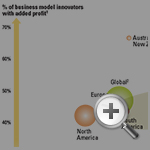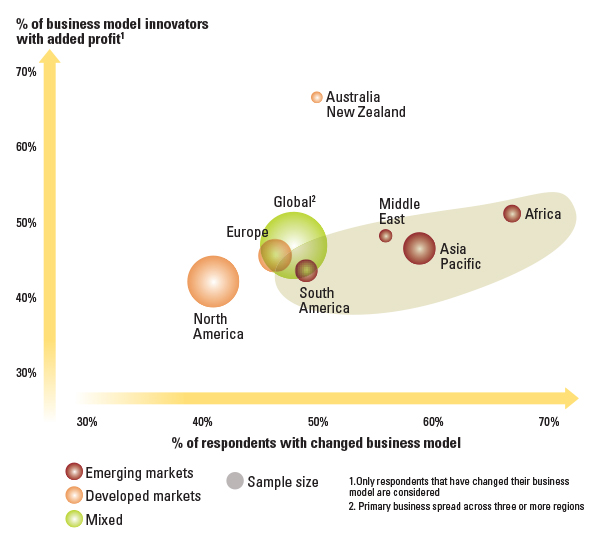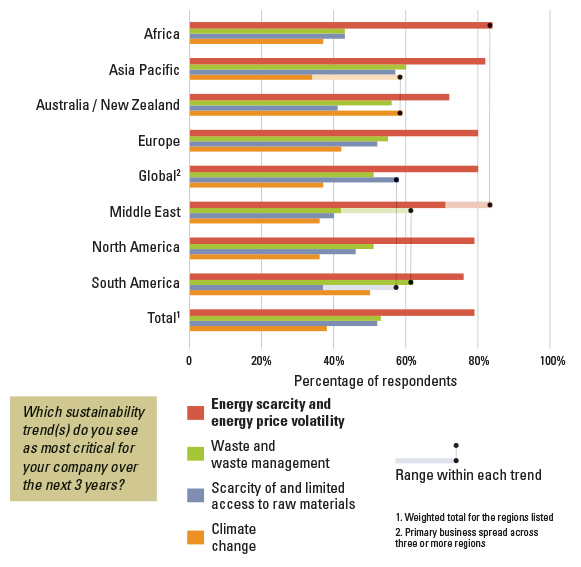First Look: 2012 Sustainability Survey Findings
Results of the fourth annual sustainability and innovation survey, conducted by MIT Sloan Management Review in collaboration with The Boston Consulting Group, are in.
Topics
Leading Sustainable Organizations
Results of the fourth annual sustainability and innovation survey, conducted by MIT Sloan Management Review in collaboration with The Boston Consulting Group, are in.
One key finding: North American companies are still lagging considerably in the integration of sustainability. Compared to companies in other countries, they have the lowest rate of business model innovation, and the fewest business model innovators who said that sustainability activities added to their profit.
Developing countries and emerging markets had the highest rate of innovation and profiting from sustainability. They were also, in response to questions not included in this figure, increasing their commitment to sustainability at the highest rate.
Asked which sustainability trends were most critical over the coming three years, energy scarcity and price volatility topped the list for every country and region. Issues around waste, and access to raw materials, were on average of equal concern vying for second place.
Climate change came in last. The exceptions were countries in regions already experiencing serious effects of climate change in terms of drought and weather events: companies located in Australia, New Zealand, and countries in the Asia Pacific region were almost twice as concerned about climate change in the next few years. Some countries, such as Australia, are already forging ahead to address both climate change and energy prices by developing their own carbon-emission trading schemes.
A preview article on the survey results will appear in the upcoming Winter issue of MIT SMR, followed by the full report in February.





Comment (1)
kpk2005